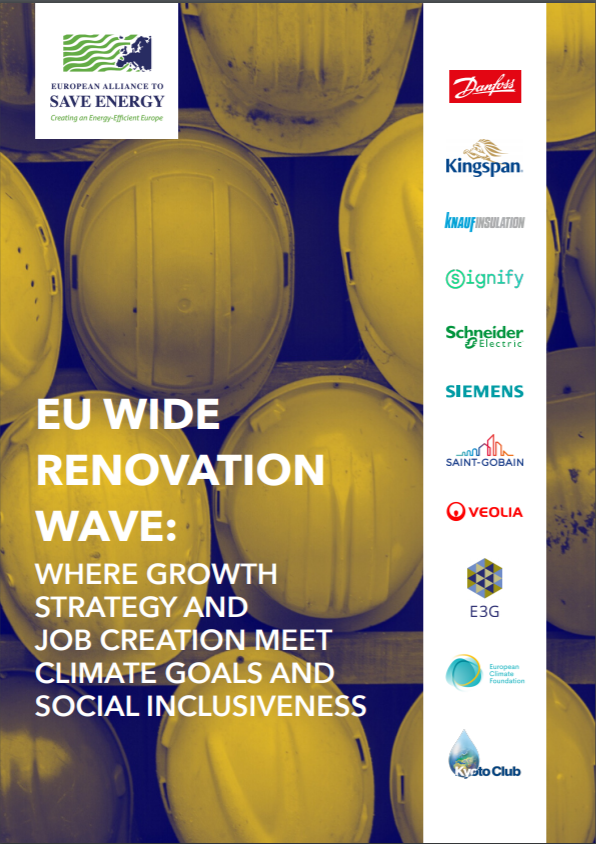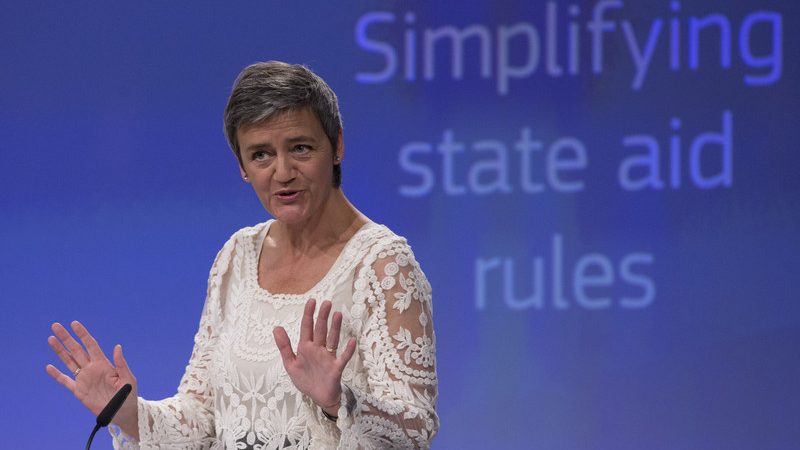EU wide Renovation Wave: where growth strategy and job creation meet climate goals and social inclusiveness

Unlocking the potential for energy efficiency and carbon footprint reduction that lies in the EU buildings stock is a top priority for the European Alliance to Save Energy.
As businesses and investors having energy efficiency and energy demand reduction at the heart of our activities, we look forward to seeing Europe’s global climate leadership translated in green measures which will lead to a sustainable recovery through stimulus packages. We strongly believe that the Renovation Wave as part of the EU Green Deal is a great opportunity to promote a European based industry, with technologies and expertise able to serve the renovation demand locally. This will help to maintain the competitive advantage of the European industry and will contribute to the European green recovery and local job creation while lifting millions of Europeans out of energy poverty.
We support a system-wide approach that puts highly energy efficient, renewable-based, smart and flexible buildings at the center of a fast-changing decentralized energy system.
With this in mind, we envisage an EU wide building Renovation Wave which revolves around the swift implementation of the Energy Efficiency First principle as the fastest and most cost-effective way to reduce emissions and stimulate sustainable economic recovery.
We are convinced that highly energy efficient and smart buildings are the first and indispensable step to:
- Accelerate the deployment of renewable energy sources
- Foster sector integration of buildings with other sectors, including industry,
transport and energy sectors - Catalyse energy system decentralization and enhance overall system efficiency
- Stimulate a sustainable economic recovery, and boost local employment
For this to happen Europe must back an ambitious and impactful Renovation Wave which aims to increase the energy efficiency of buildings by reducing their energy consumption and by fostering the greater quality, the rate, and the depth of comprehensive renovations encompassing envelopes and technical buildings systems. Concretely, and to stay on track with the EPBD goal of decarbonizing the EU building stock by 2050, the Renovation Wave should be designed to reach a minimum of a 3% renovation rate per year combined with an average energy efficiency improvement of 75%.
The social impact of an EU wide energy efficient Renovation Wave would be tremendous. Improved comfort, cleaner indoor and outdoor air quality, reduced energy bills, the emerging role of prosumers with the possibility to optimise and monetise their energy resources on a peer-topeer market place, better and more qualified local jobs are just a few concrete examples of the multiple benefits that Energy Efficiency First in buildings would deliver to those who need them the most, i.e. live in energy poverty.


